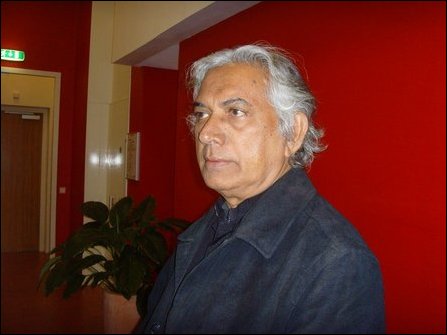NSSP (Sri Lanka)
Sri Lanka: Behind Maithripala Sirisena's defeat of Mahinda Rajapaksa

For more coverage of Sri Lanka, cli
Sri Lanka: Tamils, left debates election

Opposition-backed presidential candidate Maithripala Sirisena is supported by some Tamils and human rights activists, but others say he represents little different from the current regime.
By Chris Slee
January 2, 2015 -- Green Left Weekly -- Sri Lanka's President Mahinda Rajapaksa is being challenged by Maithripala Sirisena, who was until recently one of his ministers, in the January 8 presidential elections. However, many Tamils and leftists see little difference between the two.
Sirisena is being supported by the opposition United National Party, and has promised to appoint UNP leader Ranil Wickramasinghe as prime minister. There are 16 other candidates.
Sirisena has promised to abolish the system of executive presidency, which concentrates power in the hands of the president, and replace it with a system where the parliament has more power.
This change has long been advocated by many human rights advocates, who think that reducing the arbitrary power of the president would improve the human rights situation. Some human rights advocates are supporting Sirisena for this reason.
However the Tamil Civil Society Forum sees no real difference between Rajapaksa and Sirisena.
Venezuela: (Updated March 17) Asia-Pacific socialists pledge continuing solidarity with revolution

If your organisation would like to sign this statement, please email: international@socialist-alliance.org
Sri Lanka: Will the new Frontline Socialist Party revive the left?

By Niel Wijethilaka and K. Govindan (Nava Sama Samaja Party)
Sri Lanka: La 'Guerra de colonización' contra los tamiles
Por Chris Slee
[English at http://links.org.au/node/2210.]
El sitio de Internet Tamilnet acusó al gobierno de Sri Lanka de declarar la “guerra de colonización” contra los tamiles que viven en la isla de Sri Lanka. El gobierno ha establecido asentamientos singaleses en áreas tradicionalmente ocupadas por los tamiles. Dicho sitio compara esta situación con la política israelí de establecer asentamientos judíos en el “West Bank” e indica lo siguiente: “...Sri Lanka desea crear lo más rápido posible una situación similar al modelo israelí". [1]
Del mismo modo que Israel usa a los asentamientos judíos para separar las áreas habitadas por palestinos en pequeños fragmentos, intentando así imposibilitar un estado palestino, Sri Lanka utiliza los asentamientos singaleses para separar las áreas tamiles del norte y del este de Sri Lanka, con el objeto de imposibilitar un estado tamil independiente.
Sri Lanka: The ‘colonisation war’ against Tamils

Within the box is one of the Tamil areas targeted by the Sri Lankan government for Sinhalese settlements. Map from Tamilnet.
By Chris Slee
March 14, 2011 – Links International Journal of Socialist Renewal – The Tamilnet website has accused the Sri Lankan government of waging a "colonisation war" against the Tamil people of the island of Sri Lanka. The government has been establishing Sinhalese settlements in traditional Tamil areas. The website compares this to Israel’s policy of establishing Jewish settlements in the West Bank, saying: "Sri Lanka is aiming at creating an Israeli model situation as fast as possible".[1]
Speech by general secretary of the Nava Sama Samaja Party (NSSP) Vickramabahu Karunaratne ("Bahu") at the Tamil National Remembrance Day, November 28, 2010, in London.
* * *
I am thankful for the organisation of this event for giving me the opportunity to shed my tears in memory of those who gave their life to the liberation of Tamil homeland.Tamils have been killed by successive Sinhala-chauvinist governments in Sri lanka, last but not the least by the Mahinda Rajapaksa regime. Not only Tamils, but also thousands of Sinhala youth who were sent for aggression in the Tamil homeland and to attack Tamils. Thousands of these young Sinhalese died in an alien land.
Book explores roots of Sri Lanka conflict

Sri Lanka: 60 Years of "Independence" and Beyond
Edited by Ana Pararajasingham,
Published by the Centre for Just Peace and Democracy, Switzerland 2009
Review by Chris Slee
May 30, 2010 -- This is a very useful book for those wishing to gain a thorough understanding of the history of Sri Lanka since its independence from Britain in 1948. The 27 authors in the collection are diverse in their ethnic backgrounds, including Sinhalese, Tamils and Muslims from Sri Lanka, as well as outsiders. They are also diverse in their political outlook, including liberals, Marxists and Tamil nationalists.
Sri Lanka: Left-Tamil alliance to contest elections

Vickramabahu Karunaratne, the presidential candidate for the NSSP.
Sri Lankan socialists call for self-determination for Tamils
